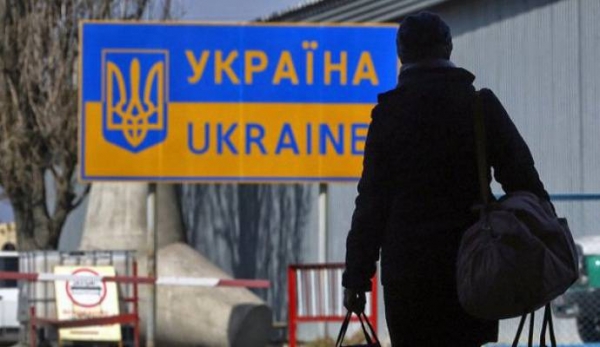In Europe is gaining momentum new scandal with migrants. This time the focus came from Poland. But not as criminals but as victims. In the UK, who recently left the European Union, the frequent attacks on Polish immigrants. So, the other day in Harlow a group of British teenagers attacked a 40-year-old Polish worker Arkadiusz Josvila. With his friend a man came out of the pizzeria and spoke the Polish language, when they were attacked by the hooligans, young boys of 16 years. The attacks target Jozwik died. After the funeral of the Polish worker there was a new assault — approximately twelve hours after the body of the unfortunate Arkadiusz betrayed the ground on two poles in the same Harlow again attacked by a group of bullies. This time Polish citizens got off relatively easy — a broken nose and a cut eyebrow. Police arrested the perpetrators of the attack on Josvila. As it turned out, that five 15 year olds and one 16-year-olds. Presumably they act out of xenophobic motives.

The attack on the poles has seriously disturbed the leadership of Poland. In the UK arrived Ministers of foreign Affairs of Poland Witold Waszczykowski and internal Affairs of Poland Mariusz Blashak. They turned to their British colleagues, expressing the view that the UK authorities should protect the poles, who live on the territory of the country. Of course, Poland and Britain are in the coordinate system of European policy in different “weight categories”. So Warsaw just got humiliated in front of London, describing all the good qualities of Polish migrants and, above all, their fairly easy ability to integrate into British society and the lack of potential conflicts, unlike the Asian and African migrants.
Recall that the UK has become one of the most important ultimate goals of the Polish labour migration. At the end of the nineteenth century in Britain there were whole quarters inhabited by immigrants from Poland (then divided between Russia, Germany and Austro-Hungary). Initially the bulk of the migrants from Poland were Polish Jews, and then began to grow share and the poles. After falling in Poland, the socialist system and the rapid impoverishment of the Polish population in Western Europe and in the UK in the first place, rushed hundreds of thousands of Polish migrants. The “Polish plumber” — this phrase became a household word, for a long time as a symbol for all immigrants from Eastern Europe.
According to the 2015 year in the UK accounted for 831 tons of immigrants from Poland. Of course, the true number of Polish citizens in the UK is even higher — because there are illegal, never considered migrants. The poles are, according to official data, the largest migrant Diaspora in the UK. Even Indians and Pakistanis follow them by a considerable margin in the tens of thousands of people. However, unlike Indo-Pakistani, middle Eastern, African migrants, the poles do without any problems mastered in the British society behaved relatively quiet and serious trouble to the local population did not create. Therefore, it is possible to understand the Polish leaders — it is doubly sad that victims of attacks have become their fellow citizens — a harmless laborers, who came to Britain to work, and is not at the most prestigious positions.
The number of Polish migrants in the UK has been increasing rapidly after in 2004 the country joined the European Union. Before the Polish Diaspora in the UK was much less impressive and consisted mainly of the early migrants and their descendants. Among them a large part of it were the poles who did not agree with the establishment of the socialist regime in Poland after the Second world war. The growth in the number of Polish migrants in 2000-ies was caused by unemployment and low (by European standards) level of living of population in Poland itself.
The rise of anti-Polish sentiment in the UK, according to analysts, may be associated with the actualization of the topic of migration control after the withdrawal of Britain from the European Union. Poles living in the British capital, complain to the press on anti-immigrant antics of the local residents. Usually such antics are in the nature of household xenophobia, someone will call the pole on the street, then shout offensive anti-Polish slogans. However, in some areas of the country the situation is more serious. For example, in Cambridgeshire the poles began receiving leaflets which said, “We leave the European Union. No longer will Polish parasites”. Reports on growing anti-Polish sentiment in the UK and contributed to growing fears of possible violent actions by Nazi youth among Polish migrants living in the country.
It is noteworthy that nazistowska youth attacked in Harlow on forty years of Polish workers, for some reason not selected as the object of a more complex target, for example — their peers, Asian and African origin. Obviously, the poles, owing to their lesser aggressiveness of kriminalizovannyh and the lack of a highly developed Diaspora relations are considered as acceptable targets. Although, maybe the attacks are much more serious reasons — for example, the desire of some political players to clear Britain from the immigrants — Europeans.
On the other hand, the negative attitude towards Polish immigrants in parts of British society still has some merit. First, the poles, according to sociologists, are the most “giving birth” ethnic group in the UK. The Polish family exceeds the level of fertility, even the Indians and Pakistanis, not to mention the indigenous British. Second, because the poles are representatives of European culture, and many of them had initially a fairly good education, they are quickly moving from low-skilled labor to higher-status positions that cannot but cause anxiety on the part of the British. Many Britons are simply afraid of competition in the labor market, they can make the Polish workers. Sociologist Miroslav Benecki emphasizes that if the poles were seen as one of the varieties of cheap labor, along with the Indians or the Pakistanis, in recent years, immigrants from Poland are increasingly no longer content with low social status and low salaries and gradually move on to more lucrative and prestigious position.

Meanwhile, in Poland itself, which has long been one of the main suppliers of labour migrants in Europe, has a very cool attitude to foreigners coming and staying to live and work in Poland. It is, of course, not the representatives of other European Nations and the natives of the countries of the Middle East and North Africa. When the EU leaders started talking about quotas, which each member country of the European Union must provide for the placement of migrants — the so-called “refugees”, Poland was among the countries that have expressed dissatisfaction with the migration policy of the European Union.
In March 2016 the Prime Minister of Poland Beata Szydlo said that the country currently is unable to accommodate refugees from the Middle East. This is quite expected position of the Polish leadership. The fact that after the mass emigration to Israel of Jewish survivors after world war II, Poland became a monoethnic state. Ethnic poles is more than 96% of the population. The remaining 4% is accounted for by a small group of Silesians, Germans, Belarusians, Ukrainians, Jews, Gypsies, and the Polish-Lithuanian Tatars.
Accordingly, the vast majority of the population professes Catholicism, with the exception of small communities of Protestants, Jews, and Tatars of the Islamic faith. Poland is very protective of the mono-ethnicity. It is quite possible to understand. The absence of complex multinational and multi-confessional composition of the population to some extent can be considered as a means of maintaining political stability. At least, conflicts on national soil in Poland can’t happen by definition. Therefore, the Polish government, most political parties and, of course, the majority of the population of the country is pretty cool about the idea of the European administration to place in Poland several thousand refugees from the countries of the Middle East.
First of all, the poles feared the emergence of large communities of foreign culture that is completely alien to the local population by religion, culture, mentality, and behaviors. Unlike immigrants from the Middle East, to local isoconversional groups in Poland have long been accustomed to, they fused with the indigenous population and are its organic part.
A typical example of the Polish-Lithuanian Tatars. First, their number in Poland does not exceed 500-600 people (even 7.5 thousand lives in Belarus and 3,2 thousand in Lithuania). Second, they settled in the territory of the Grand Duchy of Lithuania in the late XIV — early XV centuries, that is, have for several centuries shared with the poles and Lithuanians history. Thirdly, the Polish-Lithuanian Tatars have long and successfully integrate into Polish society, formed of them the shelves were part of the army of the Commonwealth, and then and in the Russian army the Lithuanian-Tatar horse regiment). Fourth, at the end of the XVI century the Polish-Lithuanian Tatars moved in Ruthenian and later in Polish language. Religious literature was written in the Polish language in Arabic letters. Naturally, from the latter-day migrants such example of integration into Polish society, even in the foreseeable future is not expected.
However, if the acceptance of refugees from countries of the Middle East of the Polish society reacted, to put it mildly, cool, much more loyal met Ukrainian migrants. The flow of migrants from Ukraine are particularly active in 2015, because of what is happening in Ukraine events, especially the war in the Donbass. In 2015, the Polish consular offices have been issued to citizens of Ukraine, a total of 925 thousand visas, which is 100 thousand visas more than in 2014. 65 thousand citizens of Ukraine received in 2015, a permanent residence permit in Poland.

A huge number of Ukrainian migrants in Poland are temporary workers, employed in agriculture. They come to harvest apples, mushrooms, getting sufficient day-to-day and a small wage. But the money is quite impressive in comparison with the level of wages in modern Ukraine. Among agricultural workers in Poland, many people with higher education, with a variety of professions — from doctors and computer programmers to journalists. What to do if the Ukraine since the work is bad, and housing prices and food are getting higher and higher? Thus, Poland, which is a source of labor for Britain, the Netherlands and several other countries in Western Europe, she imports labor from less successful ones in economic terms Ukraine. It’s rather amusing exchange professionals: the Polish plumber goes to England to fix the plumbing in the homes of wealthy Britons, and his place in Krakow or Lublin is a Ukrainian plumber.
Another large group of Ukrainian migrant students. From year to year a growing number of young citizens of Ukraine entering the educational zavdannia Poland. These include quite condescending and serious obstacle to the flow is created. But here we should not forget about the political background of a more loyal attitude to Ukrainian migrants. Poland considers Ukraine as its historical sphere of influence, and therefore interested in the education of Ukrainian citizens respect for Poland and Polish history and culture. With this purpose, organized a hassle-free training of Ukrainian students in Polish institutions of higher education. And Ukrainians often come to the Humanities, which, for obvious reasons, are the most ideologicamente. By the way, where the poles are loyal to the Ukrainian migrants than natives of the countries of the Middle East. Still affected by language and cultural proximity, centuries-old neighborhood and even stay in some States. However, over one third of poles see the danger in staying in the country a large number of Ukrainian migrants.
Thus, we see that today’s Poland is facing serious immigration problems. On the one hand, does not stop the outflow of able-bodied and qualified Polish citizens to West European countries where they can qualify for more favorable terms of payment. On the other hand, Poland itself is becoming an attractive target for migrants from neighbouring Ukraine. In addition, the EU is trying to impose on Poland its strategy of establishing the middle Eastern and African migrants that does not suit conservative and monoethnic Polish society.
A big plus of the migration policy of Poland, regardless of its relations with Russia, is its focus on the protection of the real interests of the Polish people. Criticizing the policy of the European Union, the Polish government is worried about national interests, which, in particular, relates to the preservation of the cultural identity of Poland. Therefore, Warsaw is set negatively to the plans of the Asian and African migrants in the Polish cities. At the same time, Poland, having certain ambitions in Ukraine, refuses to accept Ukrainian migrants. First, they are willing to work for lower wages than the poles themselves, and secondly, a large number of migrant workers from Ukraine — an extra trump card of the Polish policy towards Kiev.
Author: Ilya Polonsky
Used photos: http://telegraf.com.ua/, wiadomosci.gazeta.pl, http://polsha24.com/








